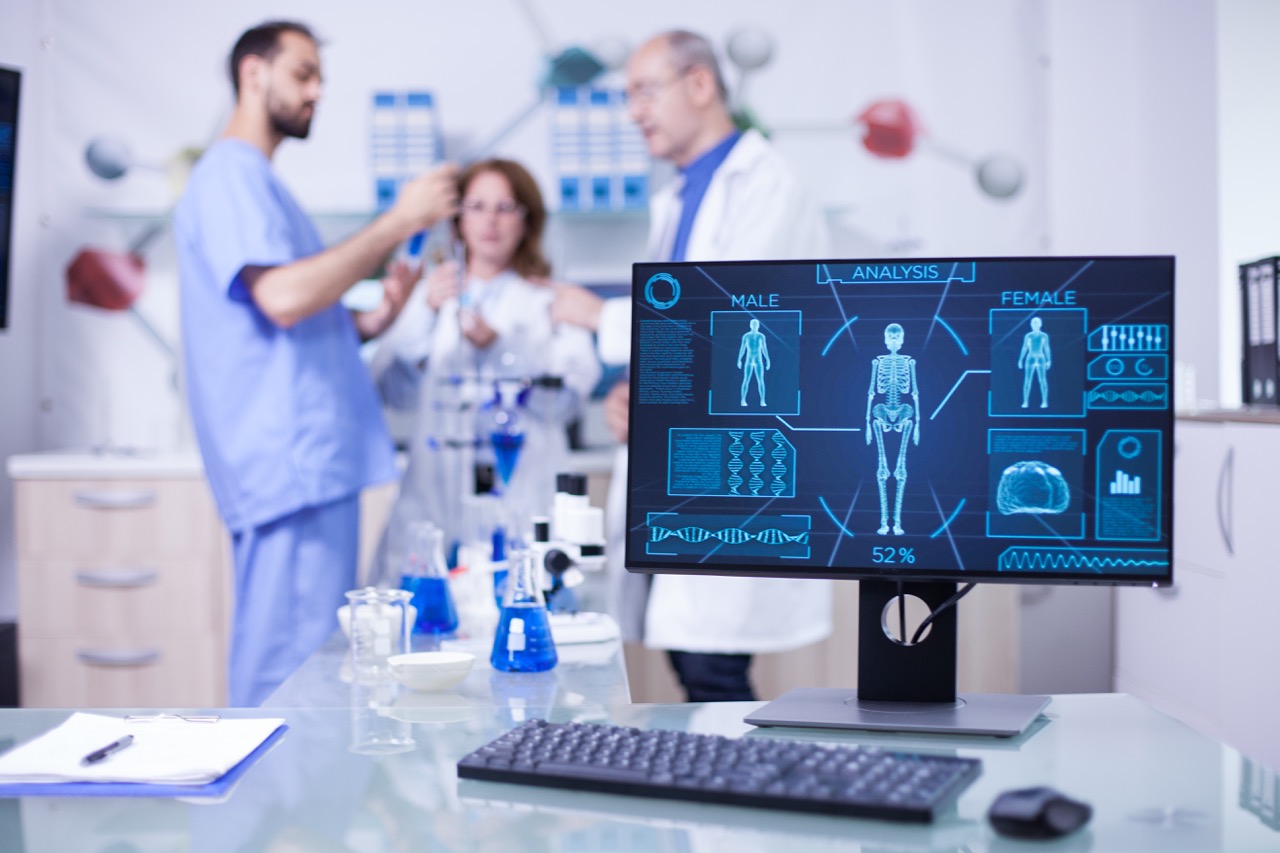The healthcare industry is undergoing a rapid transformation fueled by technological advancements. From artificial intelligence to virtual reality,1 innovative technologies are revolutionizing how we prevent, diagnose, treat, and manage diseases. These advancements promise to improve patient outcomes, increase efficiency, and reduce healthcare costs. This blog post will explore some of the key tech trends shaping the future of healthcare.
1. Artificial Intelligence (AI) and Machine Learning (ML)
AI and ML are being used in numerous ways to improve healthcare, including:
- Disease Diagnosis and Prediction: AI algorithms can analyze medical images, such as X-rays and MRIs, to detect anomalies and assist in diagnosis. ML models can predict the likelihood of developing certain diseases based on patient data and lifestyle factors.
- Personalized Treatment: AI can analyze patient data to identify the most effective treatment options based on individual characteristics, such as genetics, lifestyle, and medical history.
- Drug Discovery and Development: AI is accelerating the process of drug discovery by analyzing vast amounts of data to identify potential drug candidates and predict their effectiveness.
- Robotic Surgery: AI-powered robots assist surgeons in performing complex procedures with greater precision and minimally invasive techniques.
2. Telemedicine and Remote Patient Monitoring
Telemedicine enables healthcare providers to deliver care remotely using technology like video conferencing and mobile apps. This is particularly beneficial for patients in remote areas with limited access to healthcare facilities. Remote patient monitoring (RPM) uses wearable devices and sensors to collect patient data, such as heart rate, blood pressure, and activity levels, allowing healthcare providers to monitor patients’ health remotely and intervene when necessary.
3. Internet of Medical Things (IoMT)
The IoMT refers to the network of connected medical devices and sensors that collect and exchange data. This technology enables real-time monitoring of patients’ health, facilitates remote diagnosis and treatment, and improves the efficiency of healthcare operations. Examples of IoMT devices include wearable fitness trackers, smart inhalers, and connected glucose monitors.
4. Virtual Reality (VR) and Augmented Reality (AR)
VR and AR technologies are being used in healthcare for:
- Medical Training: VR simulations provide immersive training experiences for surgeons and other healthcare professionals, allowing them to practice procedures in a safe and controlled environment.
- Pain Management: VR can distract patients from pain and reduce their perception of discomfort during medical procedures.
- Rehabilitation: VR-based exercises can help patients recover from injuries and improve their physical function.
- Patient Education: AR can provide interactive and engaging educational experiences for patients, helping them understand their conditions and treatment options.
5. Blockchain Technology
Blockchain technology offers secure and transparent data management in healthcare. It can be used to:
- Securely store and share patient medical records.
- Track the provenance of pharmaceuticals.
- Streamline clinical trials.
- Facilitate secure and transparent healthcare transactions.
6. 3D Printing
3D printing is transforming healthcare in several ways:
- Creating custom prosthetics and implants: 3D printing allows for the creation of personalized medical devices tailored to individual patient needs.
- Bioprinting tissues and organs: Researchers are exploring the use of 3D printing to create living tissues and organs for transplantation.
- Manufacturing medical equipment and supplies: 3D printing can be used to produce medical equipment and supplies on demand, reducing reliance on traditional manufacturing processes.
7. Big Data Analytics
The healthcare industry generates vast amounts of data, including patient records, clinical trial data, and research findings. Big data analytics can help to:
- Identify patterns and trends in healthcare data.
- Improve disease surveillance and public health interventions.
- Develop more effective treatments and prevention strategies.
- Optimize healthcare operations and reduce costs.
Challenges and Opportunities
While these tech trends offer immense potential to improve healthcare, they also present challenges:
- Data Privacy and Security: Protecting sensitive patient data is crucial, especially with the increasing use of connected devices and cloud-based platforms.
- Interoperability: Ensuring seamless data exchange between different healthcare systems and devices is essential for realizing the full potential of these technologies.
- Ethical Considerations: The use of AI and other technologies in healthcare raises ethical questions about bias, accountability, and the impact on human interaction in healthcare.
- Cost and Accessibility: The cost of implementing new technologies can be a barrier, particularly for smaller healthcare providers and resource-constrained settings. Ensuring equitable access to these advancements is crucial.
Despite these challenges, the future of healthcare is bright. Technological innovation promises to improve patient outcomes, increase efficiency, and make healthcare more accessible and affordable. By embracing these advancements and addressing the associated challenges, we can create a healthier future for all.




